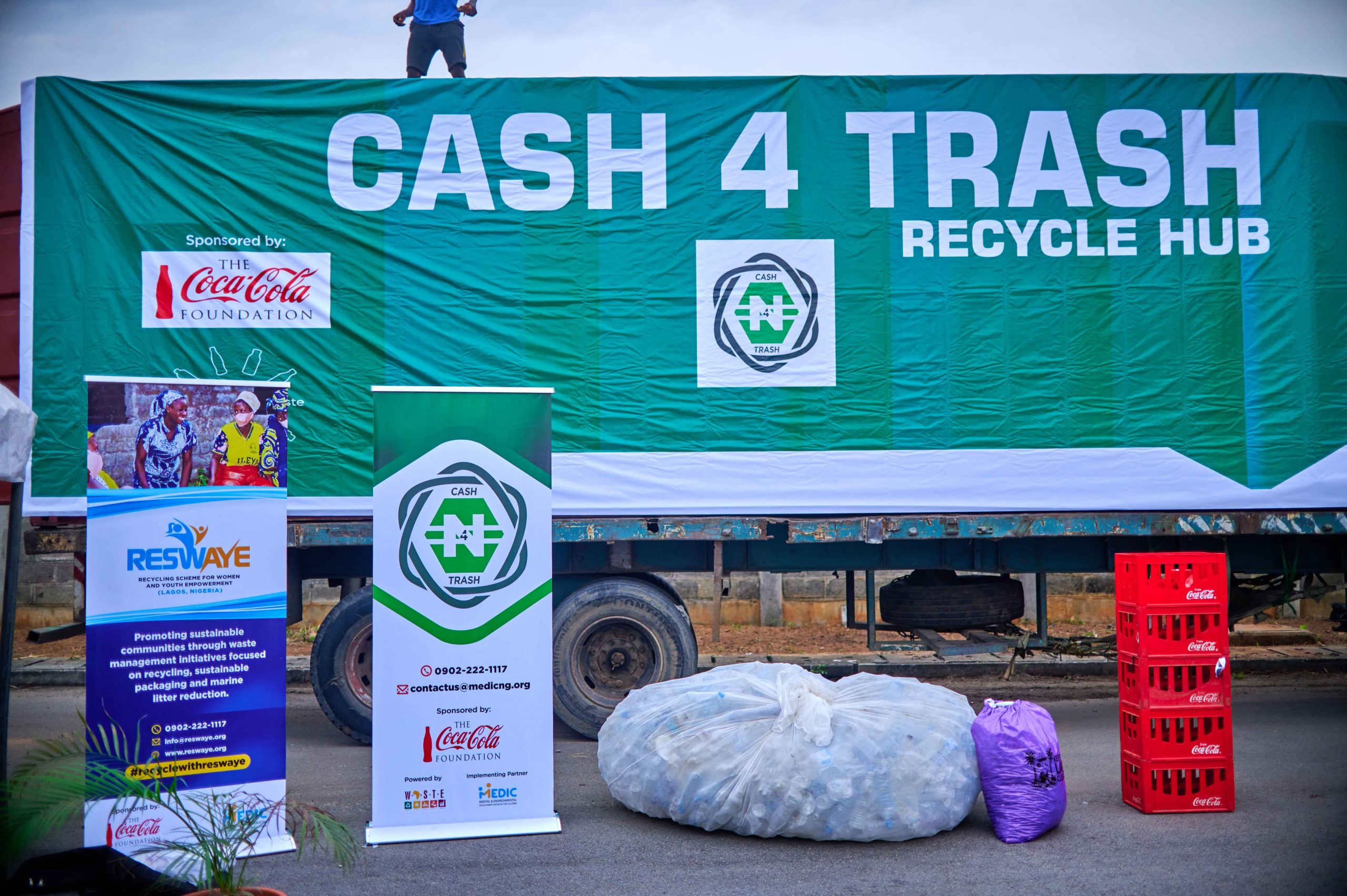Lagos is a megacity struggling under the weight of its progress. It produces over 13,000 to 14,000 metric tonnes of waste daily, according to the state Waste Management Authority (LAWMA). Of this, barely 40% is properly collected or recycled, leaving the rest to choke gutters, pollute waterways, and litter communities.
This has resulted in recurrent flooding, rising health risks and an unsightly urbanLagos landscape that undermines the city’s ambition of becoming Africa’s cleanest megacity.
This mounting waste crisis has cost Lagosians a lot. The World Bank estimates that poor waste management costs Nigeria over $3 billion annually in lost productivity, infrastructure damage, and healthcare expenses, a significant portion of which comes from Lagos alone.
Flooding triggered by blocked drainages destroys homes and displaces thousands every rainy season, while contaminated water sources spread diseases like cholera and typhoid.
Markets and residential areas constantly battle foul odours and clogged streets, driving down property values and discouraging investment. In economic terms, the state spends billions yearly on cleanup operations that could otherwise fund education, health, or housing.
Now, in a timely and innovative response, the Lagos State Government has rolled out its “Trash for Cash” initiative: a waste-to-wealth drive that pays residents for collecting and sorting recyclable materials.
The project, spearheaded by the Lagos State government, is part of the state’s renewed push toward a circular economy under the government’s “Cleaner Lagos” initiative.
Under this new system, residents can exchange plastics, cans, glass bottles, and paper for cash every Thursday through LAWMA’s community-based recycling teams. This in the long run will create a win for Lagosians and the state.
The campaign has already begun in Lagos Island and Agege, where sensitisation teams educate residents on sorting waste and the value of recyclables. LAWMA says its field officers and recycling partners are working across wards to ensure smooth collection and prompt reward distribution.
With global waste generation expected to rise by 70% by 2050, according to the World Bank, cities like Lagos, with a population exceeding 20 million, must innovate or face an environmental crisis.
Turning trash into opportunity
By incentivising recycling, the state not only reduces the volume of waste ending up in dumpsites but also strengthens local economies.
Communities stand to gain in multiple ways. The initiative promotes environmental cleanliness, reduces flood risks caused by blocked drainages, and improves public health by curbing open dumping and burning. It also opens up green jobs for thousands of informal waste pickers, small-scale recyclers, and youth-led enterprises.
Experts estimate that Lagos’s recycling sector already supports over 5,000 livelihoods, a figure expected to double as the “Trash for Cash” campaign scales up.
Economic gains for Lagos
Economically, this approach could save millions in waste management costs while generating new revenue from recycled materials.
Nationally, it aligns with Nigeria’s broader Extended Producer Responsibility (EPR) framework and supports the country’s net-zero and sustainable development goals by reducing plastic pollution and promoting resource recovery.
Similar initiatives have thrived globally: in South Africa’s “Wastepreneurs” programme, low-income earners earn steady incomes by recycling plastics and cans; in Indonesia and the Philippines, communities have exchanged recyclables for food, transportation credits, or healthcare benefits.
If Lagos sustains this model with strong logistics, public participation, and private investment, it could redefine urban waste management across Africa.
Summary not available at this time.






